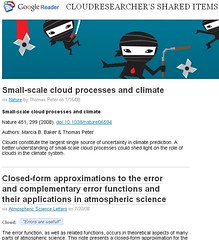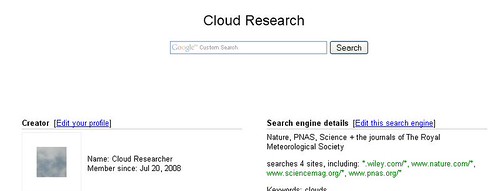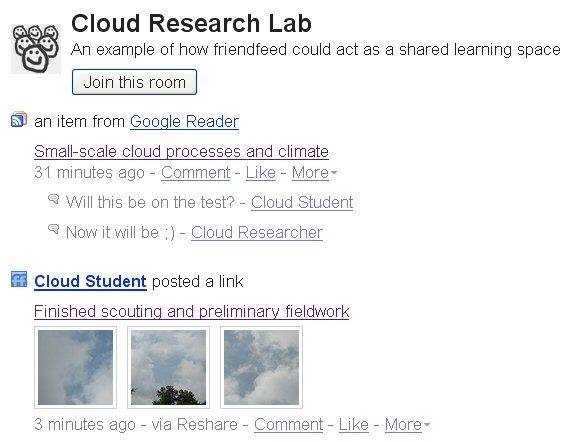After creating a Gmail account for "Cloud Researcher" I started a Google Reader account for her. It was shockingly easy to add an RSS feed of the most recent issues to the more well known journals such as Nature and Science. Now my researcher can stay up to date in her field.

Google Reader makes it easy to share items by allowing instant publishing to a clippings blog. (This feature will prove important later on)

I then created a customized Google search engine so whenever my researcher needs to refer or research, she can just search this index of just the journals and websites that she trusts. If she wants to cast a wider net, she can always opt to search with Google Scholar or even plain old vanilla Google.

If her affiliated academic library provides authentication by IP address, then our researcher can keep up with her journal reading on campus without ever visiting the library's website even once - even if she's off-campus by using Windows XP Remote Desktop option to access her work computer. And if she has a loving, caring library, she can authenticate and access research using LibX, which also comes in handy when she uses Google Books.
I'm glad I actually went through the exercise of actualizing this example because in doing so, I had a small epiphany which was this: the future of learning online space is going to be an aggregation of online services. I realized this when I started playing with FriendFeed.
I've been using FriendFeed for about a week now and I still find it a strange beast. The way I would describe it is FriendFeed = Twitter + RSS reader. I think FF is an improvement on Twitter because it allows others to comment directly to a post. But FF is not a conventional RSS reader like Bloglines or Google Reader as the emphasis is on following friends - not publications. But what you can do with FriendFeed is create different 'rooms' for your different circle of friends. I created a room called The Cloud Research Lab Room.

What would happen if FriendFeed could share structured bibliographic citations from Zotero?
I think it could be something wonderful.
1 comment:
Indeed this has changed the way I do research. The only thing you mentioned that I find doesn't work well are the FF rooms - for one thing they can't be searched by title.
Post a Comment